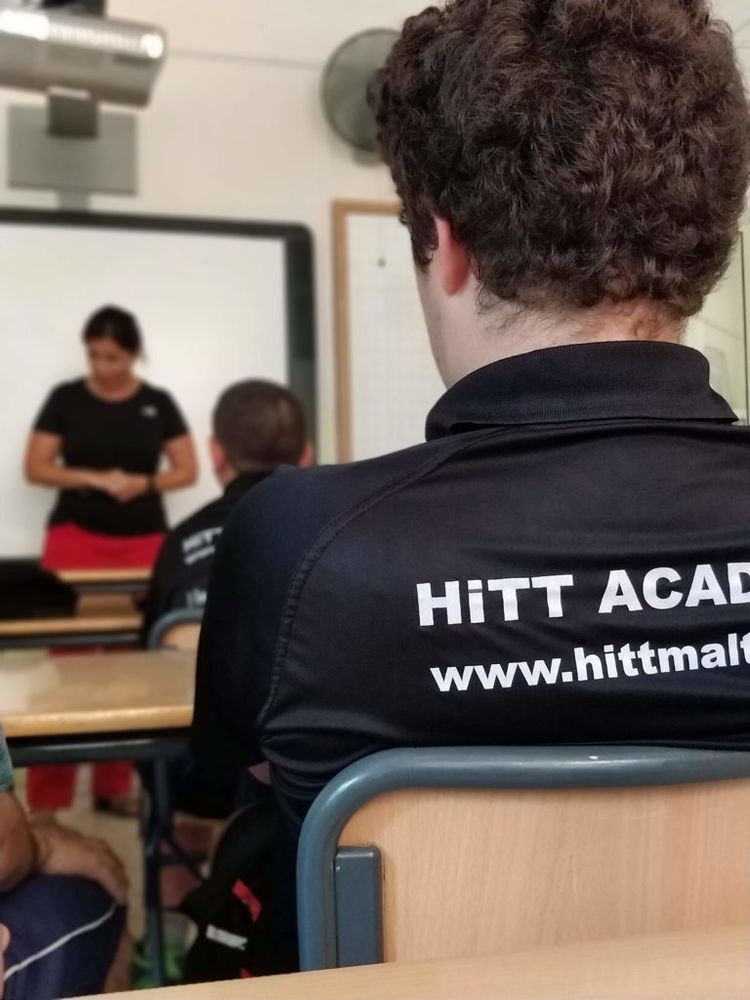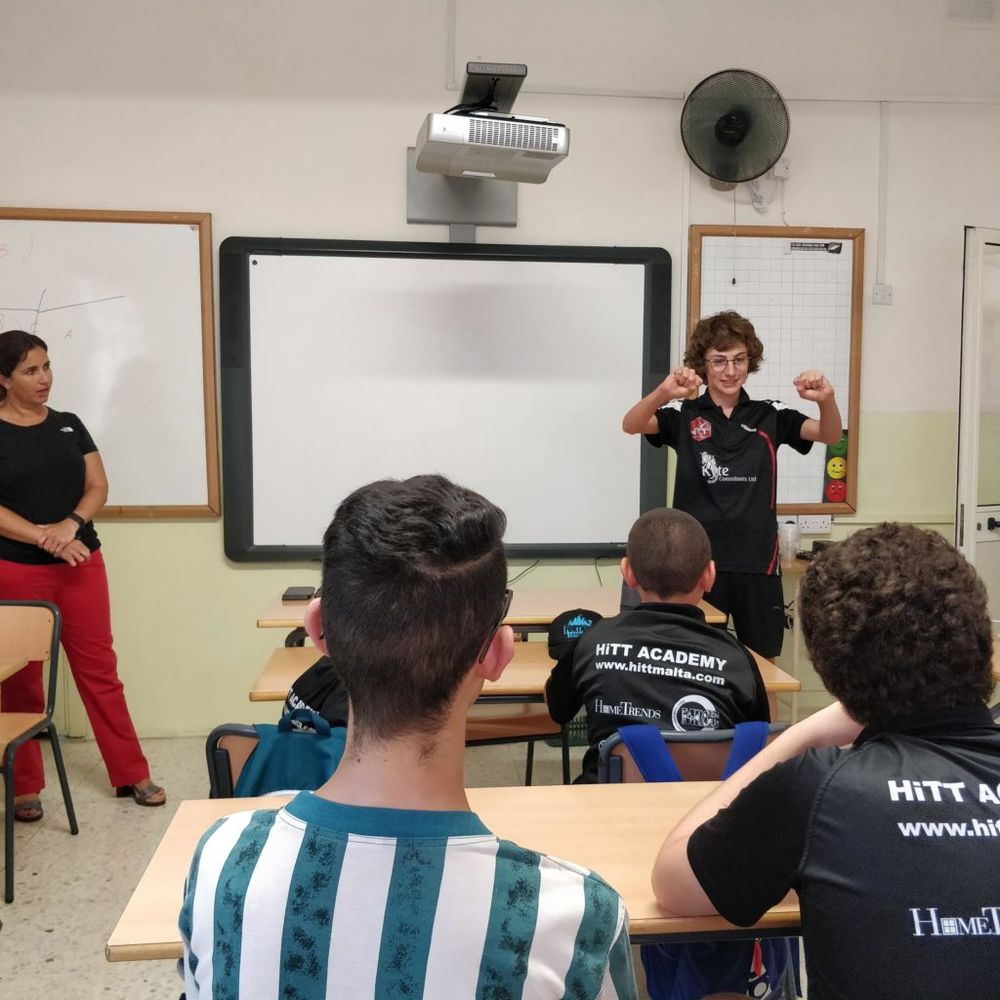Like most individual sports, Table tennis is a mental game as much as it is physical. And this means that as a player, you should be flexing your brain muscles on a daily basis. If you manage to create the right balance between how you think and how to spring into action, then you’ll discover a recipe for success.
This is what our guest, Sports Psychologist Dr Adele Muscat, spoke about to our young players. She was addressing a workshop organised by HiTT Malta Table Tennis Academy. The event was part of our summer training programme which this year is being led coach Dario Ardeljan from Serbia, assisted by sisters Sascha and Therese Genovese.
On Thursday 25th July we met at St Albert’s College at 6 pm. For a little more than an hour, Dr Adele Muscat touched upon subjects that included tips on nutrition, calming techniques, mental skills such as visualisation and concentration training and post-match self-analysis.
How to calm yourself when nervousness hits before an important match
Different players have different feelings before a match. Some may feel nervous, some excited, some happy, others may feel too calm. These are important feelings that we must learn to understand and use to our benefit. Feeling nervous for example, helps us from being overconfident. But too much nervousness, and we end up playing a very different game than what we’re used to. The level of nervousness changes from person to person. There are many ways to control this. Listening to mellow, relaxing music for example, is one way to calm yourself. There are other options of course, such as using stress relief gadgets and doing mental concentration exercises.

A proper relaxation break once a week is a practice that you should do all year round. We all have busy schedules, but we must learn to slow down. Get out in nature, go for a walk by the sea. Your brain craves it.
Mental training for high-level competition
Visualisation before a match is a routine mental exercise that every player needs to adopt. Imagine the outcomes of every point. Think about your tactics. Be ready for anything that could happen during your match. And this includes also elements related to the environment around you. You may feel out of your depth in a hall full of shouting spectators. Or maybe, when going for a tournament abroad, the change of scenery may have a strong affect on you.

You need to carry out these kind of brain exercises every single day. Spend time to think how you want to play in particular situations. Not only positive ones, but also in difficult situations. For example, imagine a negative situation in an important match. Then imagine how you can counter that situation.
Positive Self-talk
If left to wander, your brain can be quite a tough cookie.
- “I shouldn’t be losing.”
- “My opponent is weaker, how could this be happening?”
- “My coach will be angry.”
We’ve all heard ourselves think these thoughts inside our heads. But this is not the way to talk to yourself if you want to improve your chances of winning. We need a positive attitude to help us increase our motivation and our will to win. So next time you’re playing, tell yourself “let’s do this!” and see how different you’ll feel.
And if you tend to forget to keep that positive self-talk going, use a simple method as a reminder. Write a few words on your hand. A “Come on, I can do it,” for example or “that next point is mine”. Some players prefer to wear a particular wristband as a sign to remind them to keep going and to keep their motivation high.
Post-match analysis
We’re happy when we win. We’re sad when we lose. It’s normal. But a successful table tennis player is able to evaluate the game they just played. What could have they done differently or better against that opponent? Spend a few minutes to visualise yourself playing and try to spot your mistakes.
A balanced diet to provide the right energy levels required in our sports
The right nutrition, every day, is every athlete’s sacrifice but also one of the key reasons for their strengths. Dr Adele Muscat touched on this important subject, telling our players to avoid junk food and drinks with too much sugar content. She encouraged those present to focus on decent food every day, on fruit, nuts and good sources of protein. And not to forget the importance of water. Constant hydration should be a focal point for all athletes.
Superstition, a mental hurdle
Many athletes have superstitious rituals. Some may wear a particular shirt or wearable, others may follow a certain order in doing things before a match. But any kind of superstition is a very bad foe for an athlete. The concept of superstition is just a way for our brains to deal with different kinds of energies that surround us. There is no such thing as luck or bad luck. We make our own luck and that is all the help we need.
Interested in reading more about the subject? Have a look at our article The mental side of the game: how to think table tennis.
About HiTT Academy
HiTT Academy offers opportunities in local and international table tennis competitions, training camps and workshops. Our dedicated coaches offer professional advice to all levels of players from beginners to advanced. They work hard to keep themselves up to date with the latest techniques in order to offer the best table tennis training in Malta. Learn more about us on https://hittmalta.mt/ or find us on Facebook.